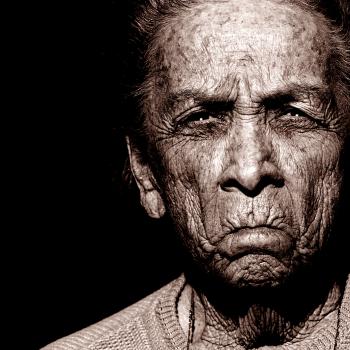Nicholas C. DiDonato
Some see religion as an unnecessary burden because it requires time and money. While time cannot be recovered, money has a way of yielding returns on investment. Research by economists Luc Renneboog and Christophe Spaenjers (both Tilburg University, Netherlands) suggests that religious households tend to save money and plan for the future more than non-religious households, and, further breaking their results down, that Catholics attach greater importance to thrift and less importance to risk than Protestants.
Renneboog and Spaenjers see an economic analysis of religion at the household level as a research gap that needs to be filled. Most economists focus on religion’s large-scale effects on economies, but haven’t bothered to investigate what difference religion makes on a smaller scale. Renneboog and Spaenjers hypothesized that religious beliefs do make a difference in household finances.
To test their hypothesis, they analyzed data from the Netherlands’s DNB Household Survey covering the years 1995-2008. This survey aims to represent the Dutch-speaking population of the Netherlands, and inquires about a range of questions from basic demographics to economics to religion. The researchers believe that the Netherlands makes for a good case study about religion because its religious people self-identify rather accurately. That is to say, few Dutch people passively inherit their religion—if they say they’re religious, they really are religious (this is due partially to the large secular population in the Netherlands), so much so that when explicitly asked about church attendance, only 17.8% of those who identify as religious do not attend (as opposed to 90.2% of those without religious affiliation)
Using the DNB data, Renneboog and Spaenjers focused on three variables: religion, economics, and demographics. They broke the category of religion into Catholic, Protestant, and other. The economics category measures thrift (the importance of being careful with money); risk aversion; internal locus of control (how much one perceives oneself as being in control of one’s life); low responsibility (that is, financial responsibility, the degree to which one believes one can influence one’s wealth); distrust; bequest motive (importance of saving money for one’s children); time horizon (the most important time-scale for saving and spending—e.g., months, a year, 5 years, etc.); savings; and percentage of savings invested in stocks. Finally, they factored in important demographic information such as gender, marital status, health status, education, income, employment, and net worth.
Upon crunching the numbers, the researchers found their hypothesis confirmed: religion does matter at the level of household finance, particularly when it comes to the behaviors of the religious versus the non-religious and Catholics versus Protestants. Compared to the non-religious, Catholics and Protestants (1) consider themselves trusting (ranked low on distrust), (2) ranked high on bequest motive (that is, they want to save not only for themselves but for their children), (3) have longer time horizons (they think long-term financially), and (4) are more likely to have actually saved money. Catholics and Protestants differ in that Catholics (as compared to Protestants) prioritize thrift and rarely take financial risks (they especially avoid stocks), while Protestants (as compared to Catholics) confess a weaker internal locus (they feel more controlled by fate) and a stronger sense of financial responsibility. Again, the researchers controlled for demographic considerations in order to isolate religion’s effect.
As with all social science research, the conclusions only have as much weight as the data they draw from. In this case, the data set comes solely from the Dutch-speaking population of the Netherlands, which the researchers admit makes their findings difficult to generalize. They themselves point out that similar studies conducted in the US indicate that Catholics display more rather than less risk-taking compared to Protestants—results that contradict their findings. This certainly opens up the question of how far to take results whose data sets fall short of a global sample.
But again, this caveat applies not just to this study but to all social science research. The problem of what to do with conclusions drawn from overly-specialized segments of the world (be they Dutch-speakers or freshmen psychology students) and figuring out to what extent they apply outside their sample is a difficult one, precisely because of the social science’s heavy reliance on such surveys. Philosophers often talk of the limits of science, and perhaps this is one of them.
For more, see “Religion, economic attitudes, and household finance” in the Oxford Economic Papers.












